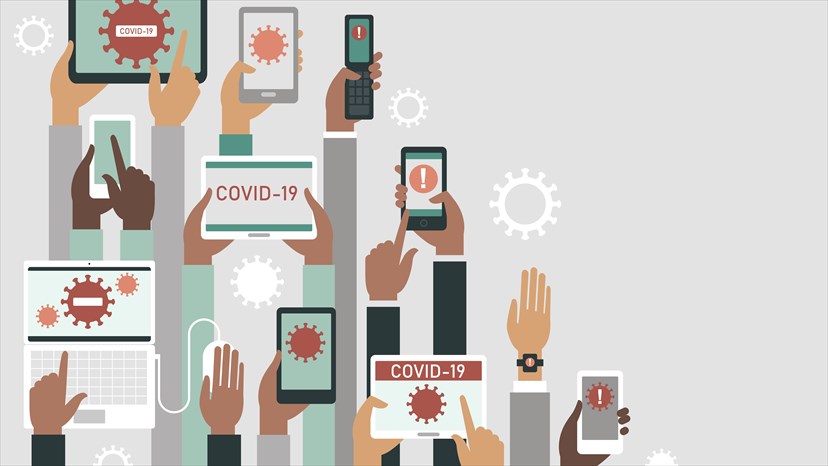By Shafizan Mohamed
The world is in the middle of a health crisis matched only by historical pandemics like the flu, cholera and the plague that killed so many people. Needless to say, the COVID-19 pandemic we are facing today is a serious threat.
In the age of modern technologies and instantaneous communication, health crisis such as this brings also another important and as terrifying a crisis that is of the ‘infodemic’.
In February, when the potential risk of the COVID-19 was still underplayed by most countries, the World Health Organisation (WHO) had warned that while the virus was at the time mostly affecting China, the world was already consumed by the ˜infodemic of which the WHO defined as “an over-abundance of information “ some accurate and some not “ that makes it hard for people to find trustworthy sources and reliable guidance when they need it”.
Trustworthy and reliable information is undeniably precious in this time of fear and uncertainty. Half of the world is on lockdown and people are expected to adopt lifestyles that are foreign and even in opposition of the modern culture.
Physical distancing, not being able to live their everyday life is not a simple change of habit. This may cause anxiety and people need to be comforted by information that can make them feel secure and optimistic. The social media especially, offer fast, entertaining and mostly persuasive information that is not necessarily accurate or credible.
It is the nature of the social networks to depend on user ˜likes and interests where the continuous act of clicking on information that fit to the users liking could spiral users into a rabbit hole of baseless and senseless information.
Examples of such misinformation are abundant.
In China, there was a widespread rumour indicating that the virus was really a biological warfare sent by the American government to undermine Chinese powers. The rumour was powerful because it changed the narrative of the pandemic from a health crisis into a game of political power.
Unlike a virus that could not even be seen by the naked eye, America was a visible culprit that can easily be blamed, and probably, defeated. In the midst of the COVID-19s unprecedented spread in Italy, fake news of an available vaccine that costs 50 Euros became the comfort to many Italians who were still confused about the predicament they were in.
In Malaysia, where fake news and misinformation are common even before the pandemic, numerous rumours and hearsay are available for daily consumption.
One misinformation that turned into a political shenenigan was the effectiveness of the sanitation of public areas. When the Ministry of Housing and Local Government attempted to sanitise roads and public places, it was highly criticised by the medical practitioners for not researching on the usefulness of the initiative. Not only was the Ministry influenced by misinformation, it was also spreading misinformation to the public by making them think that the COVID-19 virus can be cleaned off roads and public places.
While most misinformation is benign, some can be dangerous especially when it can confuse, create panic and cause people to make wrong and detrimental decisions. In time of uncertainty, it becomes easier for groups of varying interests to take advantage of the delicate situation by offering religious, political or even medical ideals that could be divisive and dangerous.
Social media organisations such as Facebook are stepping up to the plate by carefully monitoring the sharing of fake news and constantly prompting the users with information that are valid and accurate.
Governments around the world are also trying to curb the ‘infodemic’ as much as they are trying to contain the pandemic. The Malaysian Communication and Multimedia Commission (MCMC) has put in commendable efforts in managing the ‘infodemic’.
Its quick response team has managed to regularly update on fake news, sharing them via the mainstream media. Even the relevant ministries such as the Ministry of Health (MOH) is diligently communicating about the crisis by offering up-to-date information via their website and social media platforms.
With increased efforts by the authorities to offer credible information and counter misinformation, it is now left to the public to make wise and conscious information decisions. While anti-fake news campaigns with tagline such as ˜Tak Pasti, Jangan Kongsi continue to remind the public to be wary of information they get online, the temptation of dramatic and persuasive fake information can be rather hard to resist. ***
